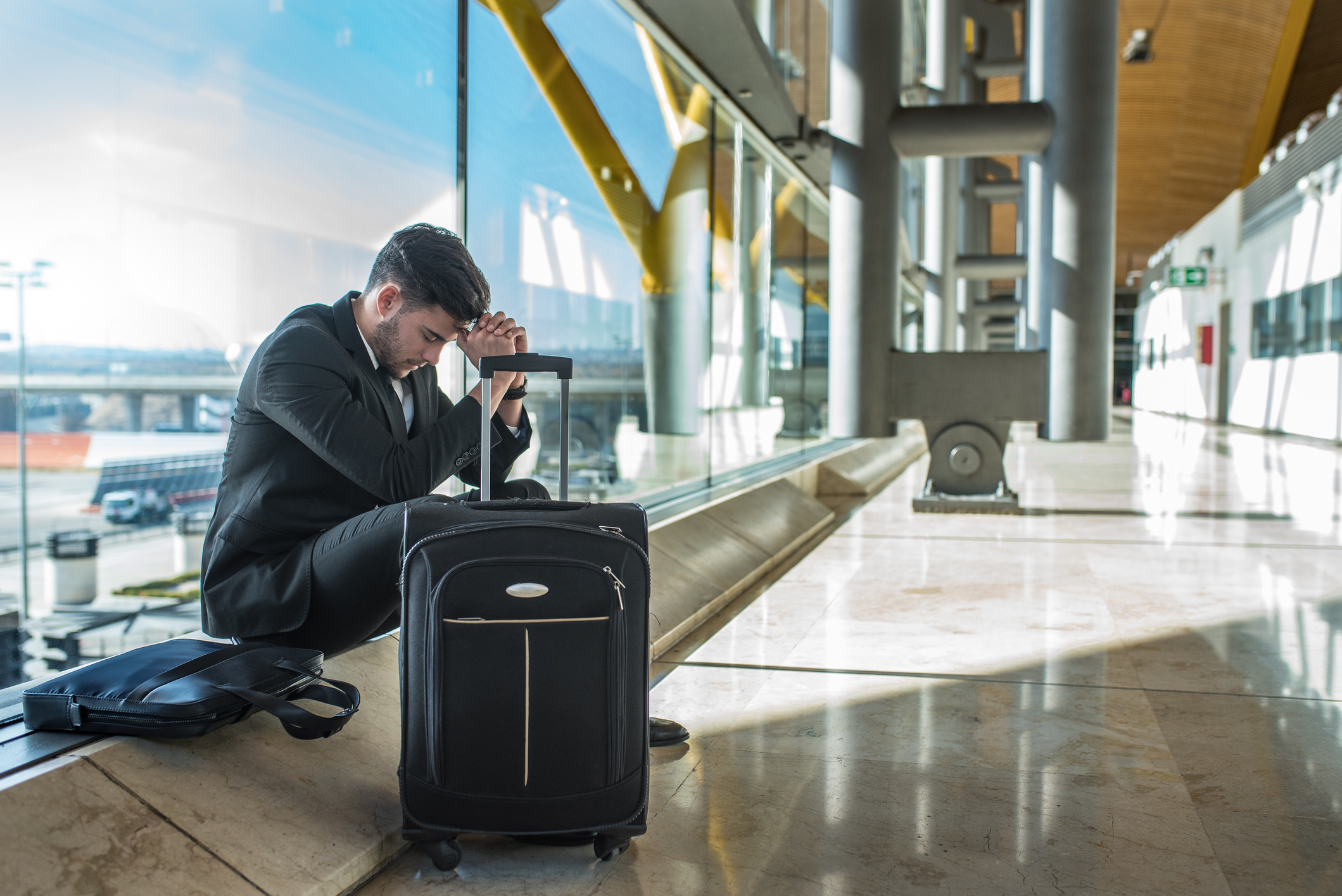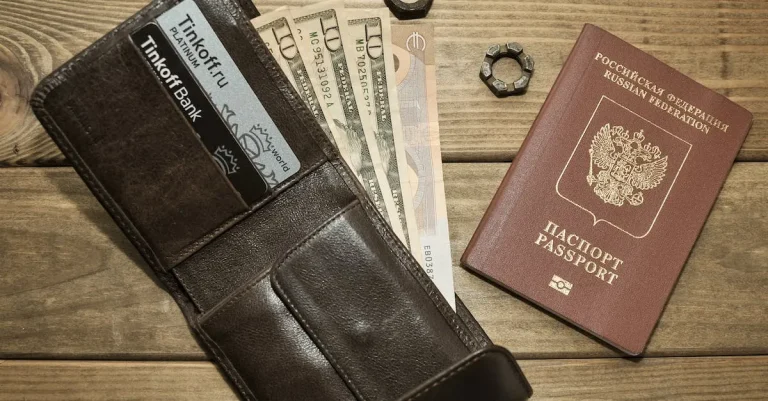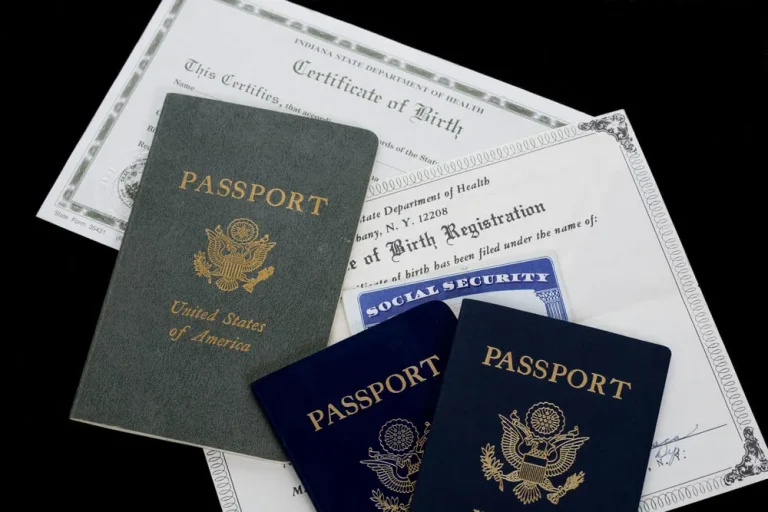Booking a flight only to arrive at the airport and be told the airline has oversold tickets is a traveler’s nightmare.
But learning how to spot the signs of an overbooked flight ahead of time can help you avoid this frustrating situation or at least be prepared if it happens.
If you’re short on time, here’s a quick answer to your question:
Watch for low fares for your flight, frequent upgrades at check-in, notifications from the airline about being on standby, a later boarding group assignment, and gate agents asking for volunteers to take a later flight.
These are all signs your flight may be oversold.
In this comprehensive guide, we’ll explain what it means when a flight is overbooked, why airlines oversell seats, how to check if your flight is overbooked, steps to take if your flight is oversold, your rights as a passenger, and tips for minimizing chances of getting bumped from a flight.
What Does It Mean When a Flight Is Overbooked?
When a flight is overbooked, it means that the airline has sold more tickets for the flight than there are available seats. This can lead to a situation where there are passengers who do not have a seat on the plane.
Airlines sell more tickets than there are seats
Airlines often intentionally oversell their flights by selling more tickets than there are seats available. This is because they know that not all passengers will show up for their flight.
They rely on statistics and historical data to predict the number of no-shows and cancellations for a particular flight.
By overselling, airlines can increase their revenue and reduce losses from empty seats.
It can be frustrating for passengers who have purchased tickets and arrive at the airport only to find that the flight is full. However, it is important to note that airlines have the right to oversell flights and it is a legal practice.
Airlines are not required to provide compensation to passengers who are involuntarily bumped from an oversold flight, but they often do in order to maintain good customer relations.
Overbooking is a legal and common practice
Overbooking is a legal practice and is regulated by various aviation authorities. Airlines are allowed to oversell flights as long as they follow certain rules and regulations.
These regulations ensure that passengers are treated fairly and compensated appropriately if they are involuntarily bumped from a flight.
The amount of compensation depends on the length of the delay and the price of the ticket.
Passengers who are bumped from a flight may also be entitled to additional benefits, such as meal vouchers or hotel accommodations.
Passengers get bumped when an oversold flight is full
When a flight is oversold and there are more passengers than available seats, the airline will start asking for volunteers to give up their seats in exchange for compensation. These volunteers are usually given alternative flights and some form of compensation, such as travel vouchers or cash.
If there are not enough volunteers, the airline may have to involuntarily remove passengers from the flight.
If you find yourself in a situation where your flight is overbooked and you are involuntarily bumped, it is important to know your rights as a passenger.
Familiarize yourself with the airline’s policies and the regulations set forth by the aviation authorities.
Remember to stay calm and polite when dealing with airline staff, as they are just following the rules and trying to accommodate all passengers as best they can.
Why Do Airlines Overbook Flights?
Overbooking flights has become a common practice among airlines, and while it may seem frustrating for passengers, there are reasons behind this strategy.
Understanding why airlines overbook flights can help travelers better navigate their travel plans.
To Maximize Profits
One of the main reasons airlines overbook flights is to maximize their profits. By selling more tickets than available seats, airlines ensure that their planes are as full as possible, minimizing the number of empty seats on each flight.
This allows them to generate more revenue from each flight, as well as cover the costs of operating the flight.
To Account for No-Shows
Another reason airlines overbook flights is to account for passengers who don’t show up for their scheduled flights. It is not uncommon for travelers to change their plans or miss their flights for various reasons.
By overbooking, airlines can ensure that even if some passengers don’t show up, the flight will still be full, reducing the chances of flying with empty seats.
Overbooking helps airlines manage this uncertainty and maintain high load factors on their flights.
It’s a Calculated Risk
Overbooking flights is a calculated risk that airlines take to minimize the impact of no-shows and maximize their revenue.
However, it is important to note that airlines carefully analyze historical data and booking patterns to determine the optimal number of overbooked seats for each flight.
Airlines use complex algorithms and predictive models to estimate the likelihood of passengers not showing up for their flights.
These models take into account factors such as flight time, day of the week, seasonality, and historical data on passenger behavior.
By overbooking flights, airlines can strike a balance between accommodating as many passengers as possible and minimizing the risk of flying with empty seats.
While it may result in occasional inconveniences for passengers, overbooking is a strategy that allows airlines to efficiently manage their operations and maximize their profitability.
How to Check If Your Flight Is Overbooked
When planning your trip, it’s always a good idea to check if your flight is overbooked. This can help you avoid potential issues such as being bumped off the flight or having to deal with overcrowded planes.
Here are a few ways to determine if your flight is overbooked:
Look for low ticket prices
One sign that your flight may be overbooked is if you notice unusually low ticket prices. Airlines often lower prices to incentivize passengers to volunteer to give up their seats on overbooked flights.
So, if you come across a great deal that seems too good to be true, it might be worth investigating further to see if the flight is overbooked.
Check seat maps frequently
Another way to determine if your flight is overbooked is by regularly checking the seat map for your flight. Many airlines allow passengers to view the available seats during the booking process.
If you notice that the majority of seats are already taken or are marked as “unavailable,” there’s a possibility that the flight is overbooked.
Call the airline directly
If you’re unsure about the status of your flight, a simple phone call to the airline can provide you with the information you need.
The airline’s customer service representative should be able to tell you if your flight is overbooked and if there are any alternative options available.
Check your boarding pass
Lastly, take a look at your boarding pass. Some airlines may indicate if the flight is overbooked by adding a special code or note.
If you see any unusual markings or instructions, it’s worth investigating further to ensure you’re prepared for any potential overbooking situations.
Remember, it’s always better to be proactive and informed when it comes to your travel plans. By checking if your flight is overbooked, you can avoid unnecessary stress and potential disruptions during your journey.

What to Do If Your Flight Is Oversold
Get on standby lists
If you find yourself in a situation where your flight is oversold, one of the first things you can do is to get on the standby list. Standby lists are created when there are more passengers than available seats on a flight.
By adding your name to this list, you increase your chances of securing a seat if other passengers do not show up or if additional seats become available.
It’s important to note that getting on the standby list does not guarantee you a seat, but it’s definitely worth a try!
Ask to take a later flight
If getting on the standby list doesn’t work or if you’re not in a rush to reach your destination, you can ask the airline if they can accommodate you on a later flight.
This can be a great opportunity to earn some extra perks while also helping the airline manage their overbooked situation. Just make sure to confirm the details of the compensation offer before making a decision.
Know your rights for compensation
In the unfortunate event that you are involuntarily denied boarding due to an overbooked flight, it’s important to know your rights for compensation.
Depending on the country you are flying in, there are regulations in place to protect passengers in these situations.
In the United States, for example, the Department of Transportation has guidelines that dictate the compensation airlines must provide to passengers who are involuntarily bumped from a flight. Familiarize yourself with these regulations and don’t hesitate to assert your rights if necessary.
Your Rights as a Passenger on an Oversold Flight
When it comes to traveling by air, overbooked flights can be a frustrating experience for passengers. However, it’s important to know that as a passenger, you have rights that protect you in these situations.
Airlines are required by law to compensate passengers on oversold flights, provide certain amenities, and offer alternative options.
Compensation required by law
According to the Department of Transportation (DOT), airlines operating within the United States are required to offer compensation to passengers who are involuntarily bumped from an oversold flight.
The amount of compensation depends on the length of the delay caused by the overbooking.
In general, if you are involuntarily bumped and your flight arrives at your destination within one hour of your original arrival time, no compensation is required.
Amount depends on delay length
The compensation amount is not the same for every passenger. It depends on the length of the delay caused by the overbooking.
It’s important to note that these amounts are the maximum allowed by the DOT, and airlines may offer higher compensation voluntarily.
For example, if your original flight was scheduled to depart at 9:00 AM but you were bumped and arrived at your destination at 10:30 AM, you would not be entitled to compensation.
However, if your delay exceeded two hours and you arrived at your destination at 11:30 AM, you would be entitled to compensation.
Other amenities can be requested
In addition to compensation, passengers on oversold flights can also request other amenities to make their experience more comfortable.
These amenities may include meal vouchers, hotel accommodations (if an overnight stay is required), transportation to and from the airport, and access to phone calls or emails to inform loved ones about the delay.
It’s important to communicate your needs to the airline staff and request these amenities if necessary. Airlines are generally willing to accommodate passengers to the best of their abilities, within reasonable limits.
Being aware of your rights as a passenger on an oversold flight can help you navigate these situations with confidence and ensure that you are treated fairly.
Remember to stay calm, communicate your needs, and seek compensation and amenities as required by law.
Tips to Avoid Getting Bumped from a Flight
Sign up for frequent flyer programs
One of the best ways to increase your chances of avoiding getting bumped from a flight is to sign up for frequent flyer programs.
Airlines prioritize their loyal customers, so by joining these programs, you can gain access to perks such as priority boarding and seat selection.
Additionally, frequent flyers often receive notifications about overbooked flights in advance, allowing them to make alternative arrangements.
Check in online early
Another effective strategy to avoid being bumped from a flight is to check in online as early as possible. Many airlines allow passengers to check in up to 24 hours before their scheduled departure time.
By doing so, you secure your spot on the flight and reduce the risk of being denied boarding due to overbooking.
Additionally, checking in early can provide you with more options for seat selection, increasing your chances of a comfortable journey.
Ask for an earlier boarding group
When boarding a flight, it can be beneficial to ask the airline staff if you can join an earlier boarding group. Airlines often prioritize boarding based on factors such as loyalty status, ticket class, and special needs.
By requesting to board earlier, you increase your chances of finding available space for your luggage and decrease the likelihood of being asked to give up your seat. Remember to be polite and respectful when making this request.
Volunteer to give up your seat
In some cases, flights may still be overbooked despite your best efforts. If you find yourself facing the possibility of being bumped, consider volunteering to give up your seat.
Airlines often offer compensation, such as vouchers for future flights or upgrades, to passengers who are willing to be rebooked on a later flight.
By volunteering, you not only prevent the inconvenience of being involuntarily bumped but also have the opportunity to benefit from the airline’s compensation offer.
Remember, while these tips can help increase your chances of avoiding being bumped from a flight, there is no foolproof method. Airlines have their own policies and procedures when it comes to handling overbooked flights.
Being prepared, proactive, and flexible can go a long way in minimizing the risk of being bumped and ensuring a smoother travel experience.
Conclusion
Getting bumped from an oversold flight can derail your travel plans and be a huge inconvenience. While overbooking is legal for airlines and a common practice, you aren’t powerless as a customer.
Being aware of the signs of an overbooked flight, knowing your rights, and taking proactive steps can go a long way in avoiding or dealing with getting bumped.
Pay attention to ticket prices, seat maps, boarding groups and airline notifications to detect an overbooking situation in advance. If your flight is oversold, get on standby, volunteer to take a later flight and request compensation.
Join frequent flyer programs, check in early online and consider volunteering your seat to minimize chances of getting bumped. With preparation and vigilance, you can avoid the headaches of an oversold flight.






